Warwickshire solar farm row pits 'builders against blockers'
- Published
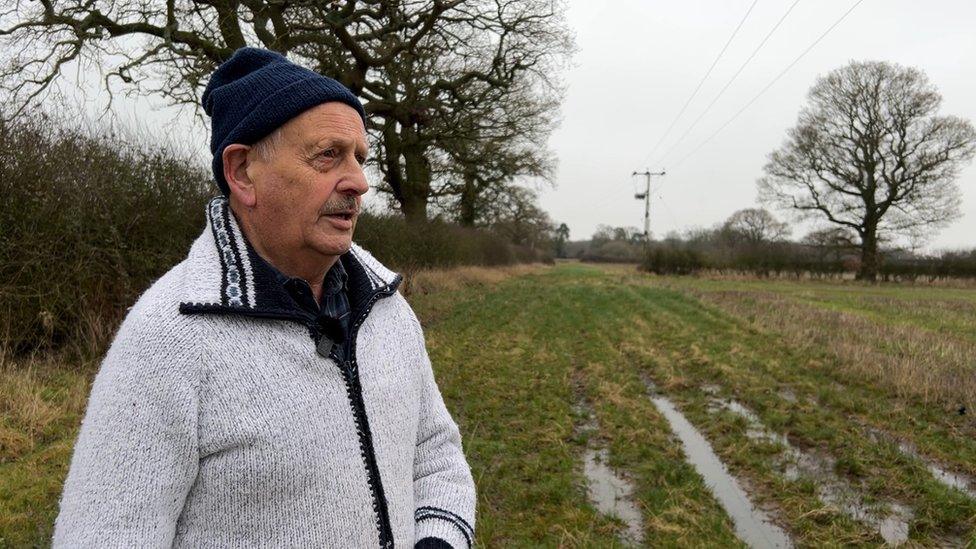
Local business owner David Clapp said he feared the solar farm could pave the way for a "deluge" of planning applications on the green belt
Should we give up parts of the countryside for the sake of the climate and lowering our energy bills?
That was the key question at the heart of a planning inquiry into a large solar farm in Warwickshire this week.
The project was approved by Warwick District Council last year.
But local Conservative MP Sir Jeremy Wright thinks that was the wrong decision, and took the unusual step of asking the government to launch a planning inquiry.
An inspector heard the case last week and will now make a recommendation, with the government due to decide the fate of the project later this year.
The story here is familiar: an MP backing constituents in their battle against a developer.
But what is at stake is part of a much bigger national conversation about climate change, our environment and the future of our energy system.
In this debate, Labour has said it wants to back "the builders not the blockers so Britain gets the cheap, clean power we need".
That's a political slogan that could be put into practice if Labour wins the general election.
And that could mean more planning disputes over where to put solar panels and whether fields in Warwickshire or elsewhere are the best place for them.
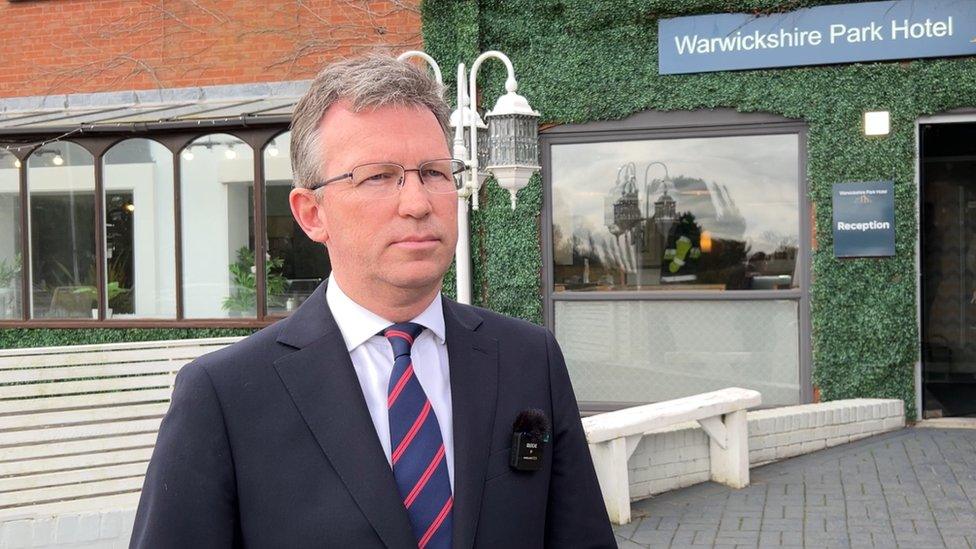
Tory MP Sir Jeremy Wright is opposing the solar farm
In a hamlet near Kenilworth in Warwickshire, David Clapp's bed and breakfast is surrounded by open fields as far as the eye can see.
He has lived here for decades at the Croft cottage, where the picturesque countryside is a draw for locals and tourists alike.
But the 84-year-old, who is also a parish councillor, fears a new neighbour could disrupt his way of life.
"If this goes ahead, it will be a catastrophe," said Mr Clapp. "It will be a deluge of planning applications."
Fears for green belt
He is referring to a solar farm proposed by Enso Energy, which wants to mount hundreds of solar panels to the ground in a field across the road from his cottage.
If built, the solar farm would cover an area equivalent to about 80 football pitches, and generate enough renewable energy to power 6,000 homes a year.
"In a nutshell, it will turn the green belt into a black belt," Mr Clapp said.
But Enso Energy doesn't agree.
At the planning inquiry last week, the company argued the solar farm would have "limited" effects on the landscape, and operate for 40 years, leaving a "light footprint".
"In all, the impacts on the green belt are remarkably limited," the company argued.
It also said there would be a biodiversity net gain of 131%, and the site would be used for sheep grazing, and be hidden behind hedges.
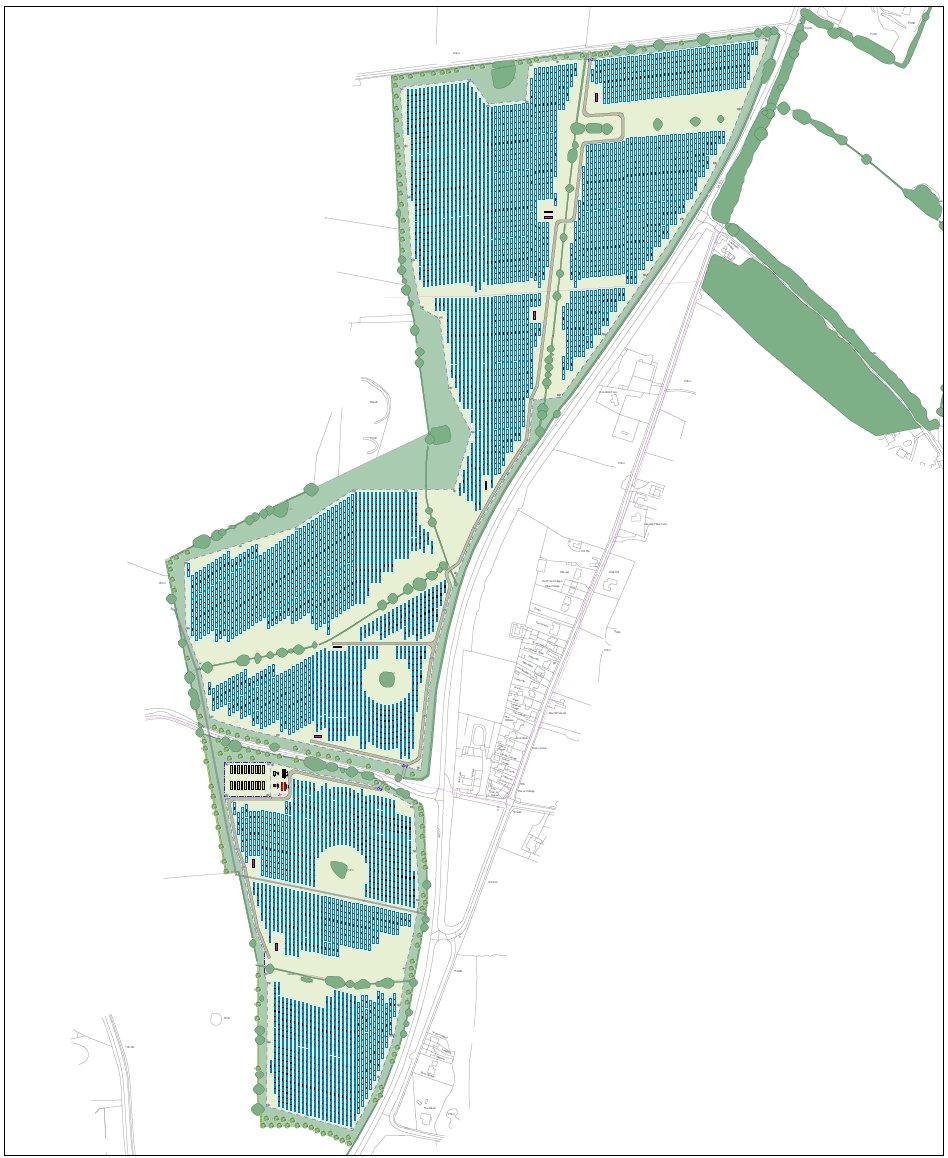
The solar farm would sit on the West Midlands Green Belt near Kenilworth
The key test in this planning inquiry is whether "very special circumstances" outweigh the potential harm to the green belt.
Initially, Warwick District Council's planning committee approved the solar farm in July, despite planning officers recommending refusal.
The committee agreed that the need to reach climate targets and increase the country's energy security amounted to "very special circumstances".
Sir Jeremy Wright - the MP for Kenilworth and Southam - feels this could set a "dangerous precedent".
"I agree renewable energy is a good thing but that doesn't mean that's appropriate to put that kind of infrastructure anywhere," he said. "It's also important to defend the green belt."
If the green belt is eroded "we will end up with a worse environment, not a better one", he added.
Sir Jeremy is supporting a local parish council, which has said it has used much of its reserve funds to oppose the solar farm.
Solar power is a key part of the government's energy strategy, with plans to develop 70GW of it by 2035.
Sir Keir Starmer's party is upping the ante, saying it wants more than triple solar power to 50 GW by 2030.
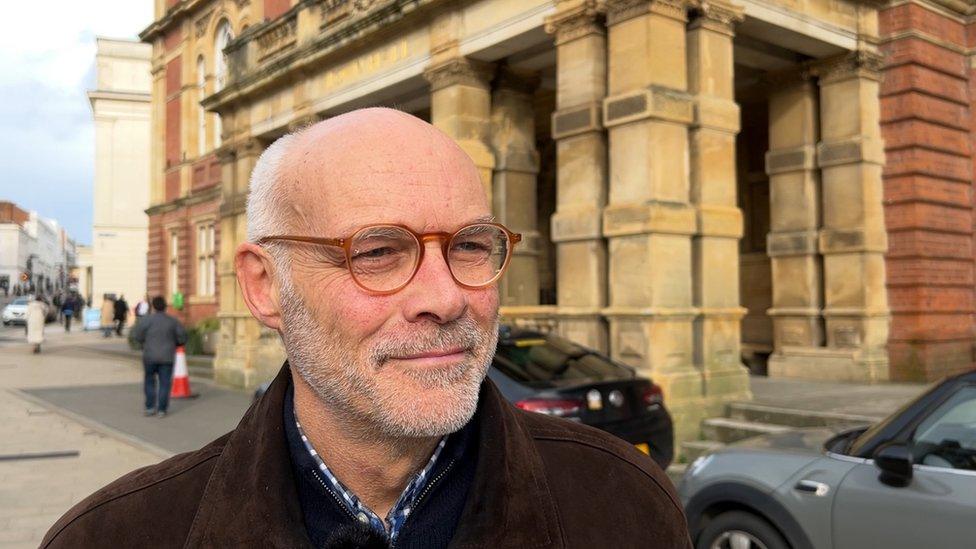
Labour councillor Chris King says the country needs to upscale its solar capacity
One local Labour councillor believes that's the right ambition.
"We want solar panels to be everywhere," said Chris King, the portfolio holder for planning policy on Warwick District Council.
He accuses David Cameron's government of scrapping plans to "decrease the carbon footprint of our buildings".
"We're left with these huge targets to become carbon neutral in not many years", said Mr King, "so we need to put solar panels where we can."
Much more clean power is needed to meet the country's climate target of net zero carbon emissions by 2050.
For many local residents here and in other rural parts of the country, swapping the green belt for green energy is not the solution.
Last year, the government changed planning rules to enable homes and businesses to install rooftop solar panels more easily.
The government said it was "clear that where possible already developed land should be used for solar panels".
But what if that isn't possible? That's where a political dividing line can be drawn between - as Labour has framed it - the builders and the blockers.

Follow BBC West Midlands on Facebook, external, Twitter, external and Instagram, external. Send your story ideas to: newsonline.westmidlands@bbc.co.uk, external
Related topics
- Published5 August 2023
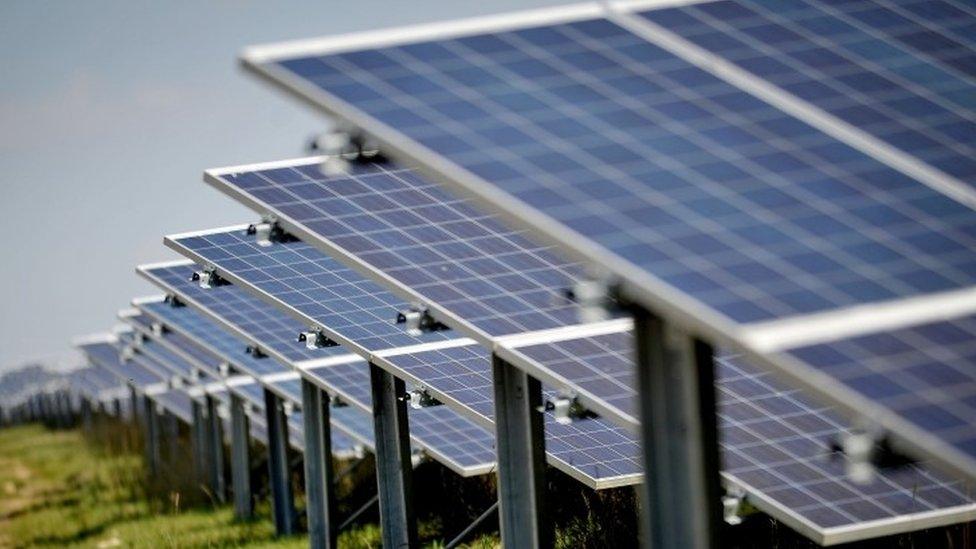
- Published24 June 2023

- Published26 March 2022
